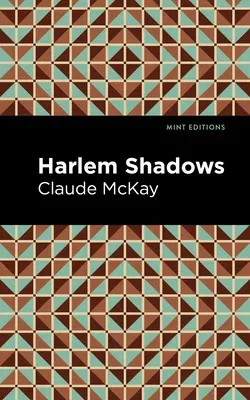Harlem Shadows (1922) is a poetry collection by Claude McKay.
Published at the height of the Harlem Renaissance, Harlem Shadows
earned praise from legendary poet and political activist Max Eastman for
its depictions of urban life and the technical mastery of its author. As
a committed leftist, McKay--who grew up in Jamaica--captures the life of
Harlem from a realist's point of view, lamenting the poverty of its
African American community while celebrating their resilience and
cultural achievement. In "The White City," McKay observes New York, its
"poles and spires and towers vapor-kissed" and "fortressed port through
which the great ships pass." Filled him with a hatred of the inhuman
scene of industry and power, forced to "muse [his] life-long hate," he
observes the transformative quality of focused anger: "My being would be
a skeleton, a shell, / If this dark Passion that fills my every mood, /
And makes my heaven in the white world's hell, / Did not forever feed me
vital blood." Rather than fall into despair, he channels his hatred into
a revolutionary spirit, allowing him to stand tall within "the mighty
city." In "The Tropics in New York," he walks past a window filled with
"Bananas ripe and green, and ginger-root, / Cocoa in pods and alligator
pears," a feast of fresh tropical fruit that brings him back, however
briefly, to his island home of Jamaica. Recording his nostalgic
response, McKay captures his personal experience as an immigrant in
America: "My eyes grew dim, and I could no more gaze; / A wave of
longing through my body swept, / And, hungry for the old, familiar ways,
/ I turned aside and bowed my head and wept." With a beautifully
designed cover and professionally typeset manuscript, this edition of
Claude McKay's Harlem Shadows is a classic of Jamaican literature
reimagined for modern readers.


